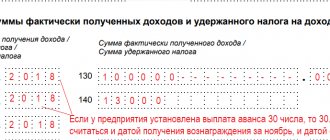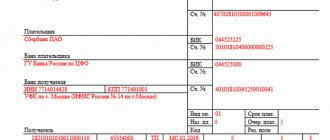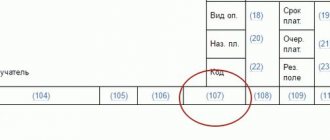Use of personal transport within the limits of the law
Russian legislation does not prohibit the administration from engaging drivers with their own personal cars to perform work functions. Moreover, in Art. 188 of the Labor Code of the Russian Federation states that for the use of personal property, including a vehicle, a worker is entitled to compensation.
At the same time, government decree No. 92 of 02/08/2002 determined the threshold norms of compensation that are tax-free. They depend on the engine size and are:
- 1500 rubles when the engine capacity exceeds 2000 cc. cm.;
- 1200 rubles if the engine has a volume of up to 2000 cc. cm.;
- 600 rubles, if motorcycles are used as work transport.
It is important to note that the law imposes restrictions solely on the payment of a fixed part of compensation. Associated other costs (fuel, technical inspection, various types of repairs and diagnostics) are not included in this limitation and are regulated by the hiring company independently.
In order to avoid misunderstandings with inspection structures, it is advisable to develop and approve a separate local document for the enterprise, which will regulate the issues of accounting for the real costs of maintaining and operating employees’ personal transport. But the main thing here is to properly establish primary accounting of the work performed. And then the accounting department will be able to easily allocate expenses to the relevant accounting items. The employee will receive full compensation for his expenses.
Remember, the legislator allowed the use of personal vehicles for work purposes and receiving compensation for this from the administration. The main thing is to formalize such relationships correctly, establish accounting and clearly state what exactly such payments are due for.
Cost of the car and its price
When determining the sale price, the parties can agree on any amount. Art. speaks about this. 40 of the Tax Code of the Russian Federation, paragraph 1. Until the contrary is proven, any transaction price is considered market and legal. Tax officials have the right to check a transaction only if it contains signs of interdependence between the seller and the buyer, and therefore, according to the logic of the fiscal authorities, self-interest (clause 2 of the same article).
According to Art. 421 of the Civil Code of the Russian Federation, parties to a transaction are free to enter into an agreement, including in terms of setting the price of the goods. If a car is sold at a low price, low residual value, or significantly below the market value, it is advisable to draw up an act in which you need to indicate all the technical characteristics of the used car, including its defects as justification for the price.
A written-off car can also be sold to a private person. In this case, it would be logical to attach to the package of documents and the report a certificate from the accounting department stating that the car has been written off and is listed on the balance sheet. Independent appraisers are also involved.
How to register an employee's car
Primary question. After all, without documentation, the company will not be able to allocate and account for the costs of maintaining an employee’s personal transport used for business purposes.
The legislator has provided several legal ways to register a personal car used for company purposes. Here are the following design methods:
| Way | A comment |
| Through an employment contract | This indicates the norm that the worker will fulfill the obligations assigned to him with his car and is written into the body of the employment agreement. It will be necessary to determine not only the fact of use of personal property, but also the basic conditions for payment of compensation for such actions. Alternatively, the company has a separate local document, which is referenced in the employment contract. |
| By concluding a civil agreement | In many companies, employment and civil law contracts are equalized. In practice, they have different natures, conditions, and legal weight. If you go this route, you will need to describe in detail the rights and obligations of the parties, as well as the conditions for payment of compensation for the operation of the vehicle. Don't forget payments for fuel, repairs, and maintenance. |
| Through a loan | The mechanism is simple. The car owner transfers his car to the loan company. Transport is placed on the balance sheet of the enterprise for its full provision. Local documents assign the car to its owner, who will continue to operate it. However, such a mechanism does not provide for direct compensation. Loan payments only. |
| Using a rental agreement | Everything is also simple here. An employee enters into a rental agreement for his car with the company. Can be rented together with him, as service personnel. At the same time, he is hired to work in the same organization. The car is placed on the balance sheet of the enterprise and is fully covered (refueling, technical inspection, repairs, depreciation). The owner receives wages and benefits under the lease agreement. |
Remember, depending on the chosen method of registering a personal car used for work purposes, the conditions of its operation and the amount of payment due to the employee will further depend.
Rules for communicating with a traffic police inspector
The traffic police inspector has run out of arguments? Then the last chance is to charge the driver for not wearing a seat belt. You can give a simple and reasonable answer to this: “you cannot drive a vehicle without fastening your seat belts while driving, and I, as a driver, literally just took off my seat belts while you were approaching me .
This is interesting: Registration in Moscow for citizens of the Russian Federation is it necessary 2020
The driver was stopped
The most controversial, confusing and incomprehensible procedure for many motorists is the registration of an administrative protocol. Here you also need to know how communication with traffic police officers goes.
If the motorist cannot present the required document, or refuses altogether, he will have to pay a fine. It is different for each paper, and the size, depending on the importance of the document, ranges from 500 to 15 thousand rubles.
Employment contract or additional agreement
The idea of using an employee’s personal transport for organizational purposes may arise simultaneously with employment, or in the future. The conditions and procedure for drawing up the primary document will directly depend on this. So, you will have to issue:
- Employment contract . When a citizen is hired to work with his own car, which will be used for official purposes. Here it is immediately advisable to indicate the conditions and amount of payment of compensation for operating a car for work purposes. They must be understandable and fully cover the costs incurred by the citizen.
- Additional agreement . It is practiced when the idea of hiring an employee’s transport for work purposes arose in the future, when he was already on staff. In this case, an additional agreement to the existing contract is simply signed. It becomes an integral part of it.
Remember, a properly signed and registered supplementary agreement becomes an integral part of the employment contract. Therefore, what is important here is not the form, but the content of the document signed by the parties.
We issue it as compensation
So, in Art. 188 of the Labor Code of the Russian Federation states that when an employee uses his personal property with the consent or knowledge of the employer and in his interests, the employee is paid compensation for the use, wear and tear (depreciation) of tools, personal vehicles, equipment and other technical means and materials belonging to him. The amount of reimbursement of expenses is determined by agreement of the parties to the employment contract, expressed in writing. Let us also pay attention to Letter No. 57, which provides explanations on the conditions for the payment and processing of compensation to employees for the use of personal cars for business trips. Although this letter was issued before the introduction of the new Labor Code of the Russian Federation, some of its provisions are still cited by officials of official bodies in their explanations and in court decisions. According to paragraph 1 of Letter No. 57, payment of compensation for the use of personal transport by employees is made in cases where their work by type of production activity involves constant official travel in accordance with their job responsibilities. But at the same time, we should not forget about the Labor Code, which states that the amount of reimbursement of expenses is determined by the agreement of the parties to the employment contract, expressed in writing. The necessary entry can be made, for example, in the employment contract itself, if at its conclusion it is known that the employee will use a personal car for business purposes. Here is an example of wording in an employment contract: “4. Obligations of the parties 4.2. The employer undertakes to: provide a car for business trips or pay compensation when using a personal car for business purposes in the following order: monthly compensation in the amount of 2,000 rubles, as well as full reimbursement of expenses according to the documents submitted (receipts for payment of fuel and lubricants, certificates of repair work and etc.);". If such a need arose unexpectedly, you need to make changes to the employment contract by signing an additional agreement with the employee.
188 of the Labor Code of the Russian Federation states that when an employee uses his personal property with the consent or knowledge of the employer and in his interests, the employee is paid compensation for the use, wear and tear (depreciation) of tools, personal vehicles, equipment and other technical means and materials belonging to him. The amount of reimbursement of expenses is determined by agreement of the parties to the employment contract, expressed in writing. Let us also pay attention to Letter No. 57, which provides explanations on the conditions for the payment and processing of compensation to employees for the use of personal cars for business trips. Although this letter was issued before the introduction of the new Labor Code of the Russian Federation, some of its provisions are still cited by officials of official bodies in their explanations and in court decisions. According to paragraph 1 of Letter No. 57, payment of compensation for the use of personal transport by employees is made in cases where their work by type of production activity involves constant official travel in accordance with their job responsibilities. But at the same time, we should not forget about the Labor Code, which states that the amount of reimbursement of expenses is determined by the agreement of the parties to the employment contract, expressed in writing. The necessary entry can be made, for example, in the employment contract itself, if at its conclusion it is known that the employee will use a personal car for business purposes. Here is an example of wording in an employment contract: “4. Obligations of the parties 4.2. The employer undertakes to: provide a car for business trips or pay compensation when using a personal car for business purposes in the following order: monthly compensation in the amount of 2,000 rubles, as well as full reimbursement of expenses according to the documents submitted (receipts for payment of fuel and lubricants, certificates of repair work and etc.);". If such a need arose unexpectedly, you need to make changes to the employment contract by signing an additional agreement with the employee.
The basis for paying compensation to employees who use personal property for business purposes is an order from the head of the organization, which establishes the amount of such compensation. It can be anything (as stated in Article 188 of the Labor Code of the Russian Federation, the size is determined by agreement of the parties to the employment contract), but for profit tax purposes it is necessary to be guided by the standards established by Resolution No. 92: for passenger cars with an engine capacity of up to 2,000 cubic meters. cm inclusive, compensation is 1,200 rubles/month, over 2,000 cubic meters. cm - 1,500 rub./month. Compensation established in excess of the maximum standards will be paid from net profit.
The Labor Code provides for two types of payments. Firstly, the actual compensation for wear and tear of personal property. And secondly, the employee is entitled to reimbursement of expenses for the use of his property for business purposes. This means that the organization has the right to independently determine the procedure and amount of reimbursement of costs associated with reimbursement of expenses when using the employee’s personal property. However, it is worth noting that from January 1, 2008, the consumption standards for fuels and lubricants established by Order of the Ministry of Transport of the Russian Federation N AM-23-r apply. These norms must be taken into account when determining the validity for tax purposes of expenses incurred for the purchase of fuel for a company car (letters of the Ministry of Finance of the Russian Federation dated January 14, 2009 N 03-03-06/1/6, N 03-03-06/1/15, dated 04.09 .2007 N 03-03-06/1/640). Expenses for the purchase of gasoline for company cars can be confirmed by cash receipts for the purchase of fuel and waybills. In relation to vehicles for which fuel and lubricant consumption standards have not been approved, when determining them, the taxpayer should be guided by the relevant technical documentation and (or) information provided by vehicle manufacturers. The specific amount of compensation is determined depending on the intensity of use of the car for business trips (clause 3 of Letter No. 57) and is independently established by the head of the organization in an order. Compensation will include reimbursement of the costs of operating this vehicle (the amount of wear and tear, costs of fuel and lubricants, maintenance and repairs).
Note! Based on the order, the employee is compensated once a month for the actual expenses incurred in connection with the use of a personal car for business trips. To receive compensation, an employee must bring the following documents to the accounting department (Letter of the Ministry of Finance of the Russian Federation dated 02.06.2004 N 04-2-06 / [email protected] “On reimbursement of expenses when employees use personal transport”): - a copy of the technical passport of a personal car, certified by in the prescribed manner; — other documents confirming the validity of the expenses incurred, in the manner established by the accounting rules (receipts for fuels and lubricants, certificates of work performed to repair the vehicle, etc.). In addition, the accountant must regularly fill out the waybill, since it serves as the primary document confirming the employee’s use of personal transport for business purposes. The form of the waybill is approved by Resolution of the State Statistics Committee of the Russian Federation dated November 28, 1997 N 78 “On approval of unified forms of primary accounting documentation for recording the operation of machines and mechanisms, work in road transport.” Mandatory details and the procedure for filling out waybills are established by Order of the Ministry of Transport of the Russian Federation N 152. The waybill form approved by Resolution No. 78 is mandatory for motor transport organizations. As for other organizations, they can develop their own form of waybill or other document confirming expenses incurred in the form of fuels and lubricants, which must reflect all the details provided for in paragraph 2 of Art. 9 of the Federal Law of November 21, 1996 N 129-FZ “On Accounting”, namely: a) name of the document; b) date of preparation of the document; c) the name of the organization on whose behalf the document was drawn up; d) content of the business transaction; e) measures of business transactions in physical and monetary terms; f) names of positions of persons responsible for carrying out a business transaction and the correctness of its execution; g) personal signatures of these persons. Employees of the financial department emphasize that in addition to the above mandatory details, waybills must contain information about the specific location of the vehicle. Otherwise, they cannot confirm the organization’s expenses for the purchase of fuels and lubricants (letters dated 02/20/2006 N 03-03-04/1/129, dated 11/15/2005 N 03-03-04/1/363, dated 09/20/2005 N 03-03-04/1/214, dated 01.08.2005 N 03-03-04/1/117). To avoid conflict situations with regulatory authorities, we recommend using a unified form.
Note! During the time an employee is on vacation, business trip, sick leave, as well as for other reasons when a personal car is not used, compensation is not paid (letter of the Ministry of Finance of the Russian Federation N 57, dated 05.16.2005 N 03-03-01-02/140, Ministry of Taxes of the Russian Federation dated 06/02/2004 N 04-2-06/ [email protected] , dated 02/22/2007 N 20-12/016776).
Reimbursement of expenses when using a personal car
Among the costs of operating a vehicle, it is worth distinguishing between direct costs, without which the car simply will not move, and the remuneration that is due to the owner for the use of his property. All this must be included in the terms of the employment (civil) agreement. It is advisable to break these positions into two independent blocks.
So, during the period of using a personal car for work purposes, its owner can count on reimbursement of expenses for fuel, oil, spare parts in the event of a breakdown, scheduled repairs, repairs in the event of an accident, payment of insurance premiums, and other direct costs.
To confirm such expenses, the following documents may be required:
- waybills, other similar documents valid in the company;
- travel logs filled out by representatives of the employer and containing the travel route, time, purpose of the trip;
- personal reports of the employee, which contain a detailed description of each trip (when, where, for what purpose, on whose behalf);
- detailed calculation of the required amount of compensation based on the actual consumption of materials and fuel;
- The work or job description contains provisions on the traveling nature of the work. But in this case there must also be primary documents (receipts, checks, invoices).
Remember, in order to receive reimbursement for real costs in the process of operating your vehicle for the needs of the employer, you will need to collect all the primary documents confirming the costs, as well as documents indicating that the work was performed for a specific institution.
We draw up a rental agreement
When using an employee’s personal vehicle for business purposes, a rental agreement is concluded between the organization and this employee. According to Art. 642 of the Civil Code of the Russian Federation, under a lease agreement for a vehicle without a crew, the lessor provides the lessee with a vehicle for a fee for temporary possession and use without providing services for its management and technical operation. The rental agreement for a vehicle without a crew must be concluded in writing, regardless of its term. It is not subject to state registration of lease agreements by virtue of Art. 643 Civil Code of the Russian Federation. During the entire term of such an agreement, the lessee is obliged to maintain the proper condition of the rented vehicle, including carrying out routine and major repairs. In addition, the lessee manages and operates the rented vehicle on his own, both commercial and technical. Unless otherwise provided by the contract, the lessee bears the costs of maintaining the rented vehicle, its insurance, as well as expenses that arise in connection with its operation. At the same time, the employer can include all expenses incurred under the lease agreement (rent, costs for the purchase of fuels and lubricants, spare parts, repairs) as expenses when determining income tax. Having considered the situation of using an employee’s personal car for official purposes from the point of view of labor and civil legislation, we can draw the following conclusion: - if an organization pays compensation to an employee established by the Labor Code, it should be guided by the maximum standards established by Resolution No. 92, otherwise (if the amount of compensation will exceed the established norms) the excess amount will go at the expense of the organization’s net profit; — when concluding a vehicle rental agreement, all expenses incurred will be taken into account for profit tax purposes.
Payment of compensation for the use of a car
Let us immediately note that even when using a car on the basis of an employment contract, the compensation paid to the owner is not part of the salary. This is a separate type of payment. Up to a certain limit (set by the government of the Russian Federation) it is not taxed. Above this norm you will have to pay taxes.
It is necessary to distinguish between reimbursement of direct expenses and compensation for the use of the machine. Indeed, in this case, the car owner also saves the company on maintaining an additional driver. In other words, the company receives real savings even if it makes payments to an employee for using his car for work purposes.
How to determine the amount of compensation
The calculation of the amount of compensation due to a worker for using a vehicle for work needs depends on the intensity of use of the vehicle.
Typically, if the machine is used daily, a fixed maximum compensation level is set. To set a smaller size, you can simply subtract the proportion of car use every day based on the results of the month.
Alternatively, some employers set a daily compensation level. This means that at the end of the month, the number of days the employee worked on his machine is displayed and the compensation due to him is calculated.
Remember, no one prohibits the employer from paying as compensation an amount exceeding the maximum allowable amount established by the government of the Russian Federation. But in this case, taxes will have to be calculated and withheld on the “remainder”.
What Documents is the Driver Required to Carry with Him in 2020?
A driver's license is also called a license and certifies a person's ability to drive a vehicle. It contains basic information about the owner, the date of issue, the place where the license was issued, as well as the categories of vehicles that the owner of the document can drive.
This is interesting: Sun pin trading 2020
What documents must a driver have with him in 2020?
The vehicle registration document should be kept in a safe and secure place. If the car is stolen, it will not be difficult to restore all other documents if you have a title on hand. In the car passport you can see the number, names and sequence of owners of the vehicle, which, in turn, allows you to track the history of the vehicle’s operation, the presence of dark spots and suspicious points.
Experts and lawyers have also long proposed to cancel this document. Although if you decide to sell a car with someone else’s help, then a power of attorney will, of course, be needed. Only a notary must draw up and certify it.
Registration of compensation for use and reimbursement of expenses
Compensation for the use of a private car is processed in the following order:
- An employment contract is concluded between a citizen and his employer, one of the sections of which stipulates the conditions for using personal transport for official needs.
- The employer issues an internal order for the company, which sets the limit on the amount of compensation, as well as the procedure for compensating the direct costs of the car owner.
- Each business trip is documented with a waybill or an entry in a special journal. The information must include the route of travel, the purpose of the trip, at whose command it is carried out, the start and end time.
- Each costly action (purchase of fuel, oil, visit to a service station) must be confirmed by a receipt, check, invoice. In the future, the originals of these documents must be submitted to the accounting department for payment of compensation. Accounting is required to check the consistency of expenses with other records that take into account the work carried out by the enterprise
- The employer has the right to refuse compensation payments to an employee if they were not made for official purposes or during non-working hours (with the exception of the purchase of fuel).
- All expenses are summed up for the month, previously issued advances are deducted and paid to the employee along with the remuneration due.
Remember, legal entities are prohibited from making financial payments for actions not confirmed by primary documents.
How to register the use of a company car for personal purposes? The following video is about this:
For personal use of a company car you must pay personal income tax
Answer:
The procedure for registering the use of a company car for personal purposes is not directly established by law, but you can provide for this possibility in an employment contract, as well as in a special local regulation. After this, we recommend issuing an order on the use of a company car for personal purposes and drawing up a transfer and acceptance certificate for the vehicle.
If, immediately upon hiring, you want to allow the general director to use the company car for personal purposes, then we recommend that you include the following conditions in the employment contract:
- the ability to use a company car for personal purposes and the conditions for its use (for example, a ban on traveling outside the city, etc.);
- characteristics of the car (in particular, make, license plate number);
- the procedure for the acceptance and transfer of a company car for personal use, as well as the return and termination of the use of a company car for personal purposes (for example, unilaterally on your part);
- the period during which the general director can use his company car for personal purposes;
- the procedure for paying fines, repairs, fuel, and other expenses (Part 4 of Article 57 of the Labor Code of the Russian Federation).
If the general director already works for you and you decide to provide him with a company car for personal use, then enter into an additional agreement with him to the employment contract and reflect all the above conditions in it (Article 72 of the Labor Code of the Russian Federation).
If the Organization has a local regulatory act (collective agreement), which regulates in detail the procedure for using a company car for personal purposes, you do not have to duplicate its terms in the employment contract.
It is enough to indicate the condition on the possibility of using a company car for personal purposes, the characteristics of the car, the period for which it is transferred, and make a link to the local regulatory act.
The main thing is that the employee (general director) is familiar with the local regulatory act upon signature (paragraph 10, part 2, article 22 of the Labor Code of the Russian Federation).
Regarding the calculation and payment of personal income tax, we note the following.
Free use of a company car for personal purposes is an economic benefit for the user - the director.
In this case, the taxpayer’s income is recognized as economic benefit received, including in kind, taken into account if it is possible to evaluate it and to the extent that such benefit can be assessed, and determined according to the rules of Chapter 23 of the Tax Code of the Russian Federation (clause 1 of Article 41 of the Tax Code RF).
However, in your situation, for an individual to generate taxable income, it is necessary that the employer has the opportunity to determine the amount of economic benefit received by him in accordance with Chapter 23 of the Tax Code of the Russian Federation.
In Chapter 23 of the Tax Code of the Russian Federation itself there is no procedure for determining the amount of economic benefit received by an individual. Although from its contents it can be concluded that in order to fulfill its duties as a tax agent, the organization must take all possible measures to assess and take into account the economic benefits (income) received by individuals.
When determining the tax base for personal income tax, all income of the taxpayer received by him both in cash and in kind, or the right to dispose of which he has acquired, is taken into account (Clause 1 of Article 210 of the Tax Code of the Russian Federation).
The list of income exempt from personal income tax is contained in Article 217 of the Tax Code of the Russian Federation.
Since Article 217 of the Tax Code of the Russian Federation does not contain provisions providing for exemption from personal income tax for the gratuitous use of a company car for personal purposes, this income is subject to personal income tax in the prescribed manner. When a taxpayer receives income from organizations and individual entrepreneurs in kind in the form of goods (work, services), other property, the tax base is determined as the cost of these goods (work, services), other property, calculated on the basis of their prices, determined in a manner similar to provided for in Article 105.3 of the Tax Code of the Russian Federation (clause 1 of Article 211 of the Tax Code of the Russian Federation, letter of the Ministry of Finance of Russia dated 03/09/2017 No. 03-04-05/13125).
The resulting income in kind can be calculated, for example, based on the cost of renting or renting a vehicle similar to the one used by the employee (letter of the Ministry of Finance of Russia dated June 11, 2014 No. 03-04-05/28243).
It is also necessary to keep separate records of expenses associated with the use of a company car for business trips and personal ones (fuel and other expenses).
Get expert advice
according to your situation and get expert advice.
Ask a Question
Ask a Question







